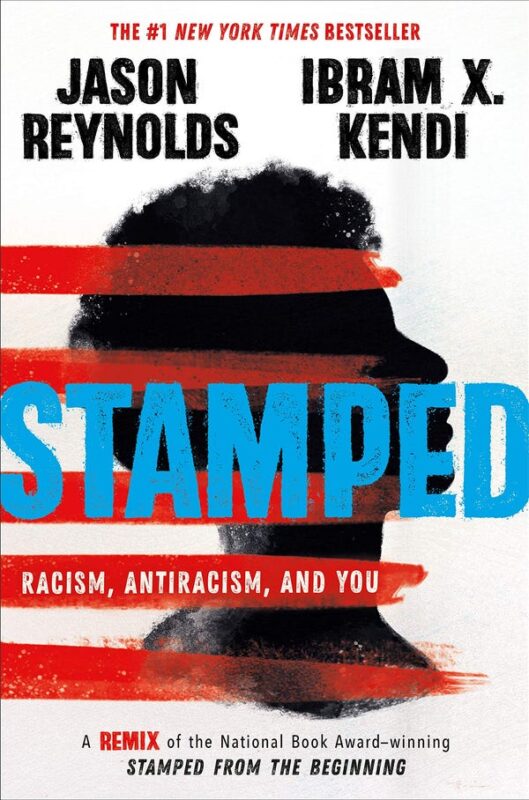Stamped – Racism, Antiracism, and You
Series: Reads and Reviews, Reads and Reviews - August 2021
Genre: Historical Nonfiction - YA
Stamped From the Beginning seeks to explain the narrative thread of racism that has run throughout the whole of American (Colonial and U.S.) History. It begins with Portuguese exploration and ends with the present day. This book provides a more succinct narrative of the history of racism in the United States than the original epic tome written by Ibram X. Kendi. Jason Reynolds took the original work and parsed it down into an engaging dialogue that makes the work feel much more like a conversation than a history textbook. (As Reyolds notes many times, it is NOT a history book!). Reynolds explores how the racist segregationists (the racist haters), assimilationists (basically accommodationists) and antiracists (the lovers) have all pushed and pull history, and how, unfortunately, the racists have often controlled that narrative. Reynolds draws from the many examples provided by Kendi, and the book generally follows the same historical narrative as Kendi's original.
This book is labeled for ages 12 and up, but honestly, I think it's best suited for high school students. There is so much to contextualize and explain, and I think the narrative or nuance would become lost if a teacher finds that they have to provide background for the twenty different concepts interwoven on a single page. High schoolers will be able to really explore the themes that are central to the text. I think a teacher could even spend a week working through just one of the chapters with students. (For instance, I know that could spend a full class period with students explaining why the phrase "I have black friends," doesn't exempt one from racist ideas and how that was basically an unsaid motto of Thomas Jefferson.)
Also, this book is for teachers. Especially those well-meaning teachers who picked up the original Stamped From the Beginning, realized that the text was incredibly dense, and then placed the book on their shelf to collect dust. This book breaks down the major concepts of the book without the incredible detail. If you're one of those teachers (shh, I won't tell), definitely pick up this book for yourself.
For a plethora of reasons, teachers might not be able to implement this full text in their classrooms, however, I hope they think about how they can.
More info →


